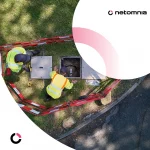Customers of BT Being Targeted by Telephone Scammers from India
A new report claims that customers of BT’s broadband and phone services are being targeted by fraudsters based in India. The criminals will often call and pretend to act as official customer support agents in order to hijack your PC / steal money, although this crime is by no means unique to BT.
According to The Register and a long running thread on BT’s community forum, many of the calls will follow the now all too familiar tactic of claiming that a customer has Malware (malicious software) on their computer. After that the individual is frequently asked to install some third-party software or make a change on their computer in order to tackle the problem via remote access, which is an obvious sign of the scam (i.e. they’re hijacking your computer).
In many of these cases the scam caller will appear to be calling from a UK area code and they often demonstrate knowledge of your personal details (e.g. name, phone number and address). However this does not mean that BT itself has been hacked because such details are can easily be scraped from public sources. Not to mention the huge amount of personal info. that has been stolen via unrelated hacks over the past few years.
Advertisement
The fraudulent callers will be aware that BT are the biggest broadband provider and thus sometimes they’ll just guess that you might be using them for your sercice (hence people on non-BT providers also receiving calls claiming that their BT services have a problem etc.).
BT User Kim2 said:
I know that most people are aware of the scam calls but many times the number shows up as international which is always a good clue. Had one about ten minutes ago from 01378 255791. This looked like it was from the UK so I answered it. It was the usual Indian gentleman who claimed he was calling from BT.
He said that there were hackers on my computer and I needed to switch the computer on so he could fix it. Yes, I know we all have heard it before but horrible thought that there may be vulnerable people who may be taken in.
BT User Xlicit said:
I just had a suspicious call in last 20mins. They first started the conversation saying line is dodgy so will have to disconnect. Which at first I believed as recently I had to get bt to come fix it and they put me on a spare of a spare in a sense. But then they changed subject to malicious packets been sent down my line was a concern.
By this point I called them on their bluff. Said if you want to notify me to email me or send letter not by call. They were asking what devices I had connected, seeing if got pc which again I said no. They even tried to say look we’re not scammers. Let me pass you to my manager.
Never had this at my old address, already sick of scam calls this weekend. I hope nobody falls for this! Was v believable.
BT User basketcase1 said:
Does anyone recognise the number 0161 818 8583?
Just had a call from a very polite gent with an Indian accent (called Robin Richards, he said). Apparently there are people misusing my Internet service and he wanted to help me sort it out.
I told him I never answered these calls, but would ring him back and got this number. When I said “0161” that sounds familiar, he knew it was a Manchester prefix. Several closely related numbers are scams.
Doubt I’m going to ring back.
However the issue highlighted above is by no means unique to BT and it is in fact a long running problem, which continues to affect most of the major mobile and broadband providers. Everybody from KCOM to Vodafone, Sky Broadband, BT and all the way down to some smaller ISPs have also been targeted. But for obvious reasons the biggest providers are usually the most attractive.
Budget ISP TalkTalk has of course suffered more than most, although that was largely due to a number of security breaches with their customer database that enabled hackers and dodgy customer support agents to steal significant quantities of private information (here and here). Fraudsters were later able to use this data to surgically target known subscribers, which made their calls much more believable.
In other cases criminals may also scour rubbish bins in order to find invoices with identifiable information, which can then be used to fuel similar scams.
Advertisement
A BT spokesman said:
“BT takes the security of its customers’ accounts very seriously. We proactively warn our customers to be on their guard against scams. Fraudsters use various methods to ‘glean’ your personal or financial details with the ultimate aim of stealing from you. This can include trying to use your BT bill and account number.”
Most ISPs will never ask subscribers for personal information out of the blue and they’ll always call from a known number. Likewise they usually won’t try to make you panic about a serious problem that doesn’t actually exist. The best course of action is to put the phone down, wait a few minutes and then call your provider directly on an official number in order to report the incident.
The largest providers are also implementing some increasingly sophisticated nuisance call blocking services, which are helping to tackle such problems. But these work best when people report dodgy numbers to the provider ASAP.
Mark is a professional technology writer, IT consultant and computer engineer from Dorset (England), he also founded ISPreview in 1999 and enjoys analysing the latest telecoms and broadband developments. Find me on X (Twitter), Mastodon, Facebook, BlueSky, Threads.net and Linkedin.

















































Comments are closed